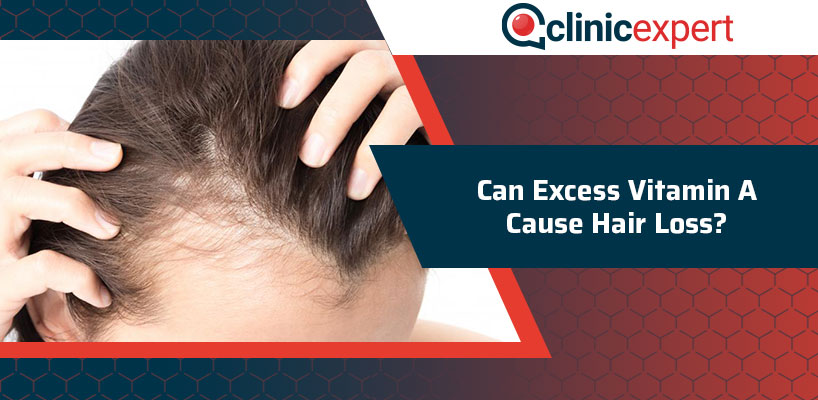Can Excess Vitamin A Cause Hair Loss? There are vitamins and minerals that the human body needs in order to continue its life in a healthy way. However, although the presence of these vitamins provides general benefits, the idea that excess is harm is often forgotten. One of them is vitamin A. When most people hear that it is particularly beneficial for hair, they immediately try to store vitamins with supplements and foods. What about can excess vitamin A cause hair loss?
This Vitamin Can Even Cause Hair Loss
There is something we insistently tell to each of our customers who come to our hair transplant Turkey center: Pay attention to synthetic supplements containing vitamin A! The link between excessive vitamin A intake and hair loss has been confirmed by science. Vitamin A can be toxic to the body if ingested in excessive amounts. So it’s no surprise that nature provides us with a little vitamin A from our diet, unless we use animal livers. This is one of the many reasons why we don’t recommend taking vitamin A in Organics.
It’s only activated in vitamin A when the body needs it – in the right dosage. Carotene is found in large amounts in our diet in all red fruits and vegetables (eg sweet potatoes, tomatoes, carrots) as well as green leafy vegetables such as Swiss chard and spinach. A list of most of the carotene plants can be found here. So forget about supplements and enjoy a natural dish – preferably as raw vegetables.
Vitamin A Is Unknown
Vitamin A is a special case: although it is often found in processed skin and hair, nothing is known from the literature about the link between vitamin A deficiency and hair loss.
Acute and chronic vitamin A poisoning caused by dietary supplements is often described in the literature as the recommended daily intake for this vitamin and possibly very close toxic intake. Knowing that it is the best hair transplant technique for the solution of the vitamin A problem in your hair relieves your anxiety.
Do Not Neglect The Doctor’s Advice
This may be a little more problematic when supplements are in self-medicating form. It can interact with the drugs you are taking, and some nutrients can provide too much of a benefit. These include iron, selenium, and vitamins A and E (see each section for details). The fact that nutritional supplements are available without a prescription should not hide the fact that non-critical nutritional supplements can harm you. Therefore, always get advice from your best hair transplant doctor or dermatologist and stick to the recommended dosages!
You don’t need to over-dramatize vitamin pills – the negative effects of food intake are rare. However, a non-deficient intake of vitamins and minerals is usually viewed by neutral experts as unnecessary and relatively important.
To Prevent Hair Loss With Drugs
Some dermatologists prescribe iron, zinc, and / or biotin for baldness and effluvium without a prior diagnosis: these are simple measures that may help. However, given the generally good nutritional status of Central Europeans, the chances of success with this alone are very high. If the treatment were simple, hair loss problems would not be common and permanent
The hair looks equally thin all over the head. Although a diagnosis of hair lossing actually provides a complete description of your problem, including its cause (although there is no prospect of cure), a diagnosis of diffuse baldness is simply a description of what’s going on in your head. If there is this problem, it does not mean that everything is over. The latest technologies for hair transplant now save from stressing hair loss.
Hidden Causes Of Hair Loss
When looking for the cause, diffuse hair losing often presents a detective challenge to both doctors and patients. However, there are options to stop hair loss and even reverse hair loss once the cause is identified cheap enough. In many cases, diffuse baldness just disappears spontaneously – if the causative factor is only effective for a short time.
The causes of diffuse hair loss can be very different. The most common causes are probably stress, hormonal fluctuations, fever, medication side effects, and thyroid disease. In rare cases, nutritional deficiencies can also play a role
As A Result
Compensation for a diagnosed nutritional deficiency is usually easy to achieve (usually by adding an appropriate dietary supplement, sometimes by injection) – and if this also removes existing hair problems: even better. If you are experiencing serious hair loss and you see that there are gaps in between, of course, it will be useful for you to meet with a hair transplant in Turkey specialist immediately. Thanks to strong communication, it will let you know what you need and what you don’t. At the same time, if you still have questions about can excess vitamin a cause hair loss, discussing them with the competent doctors will help you take more correct steps.



